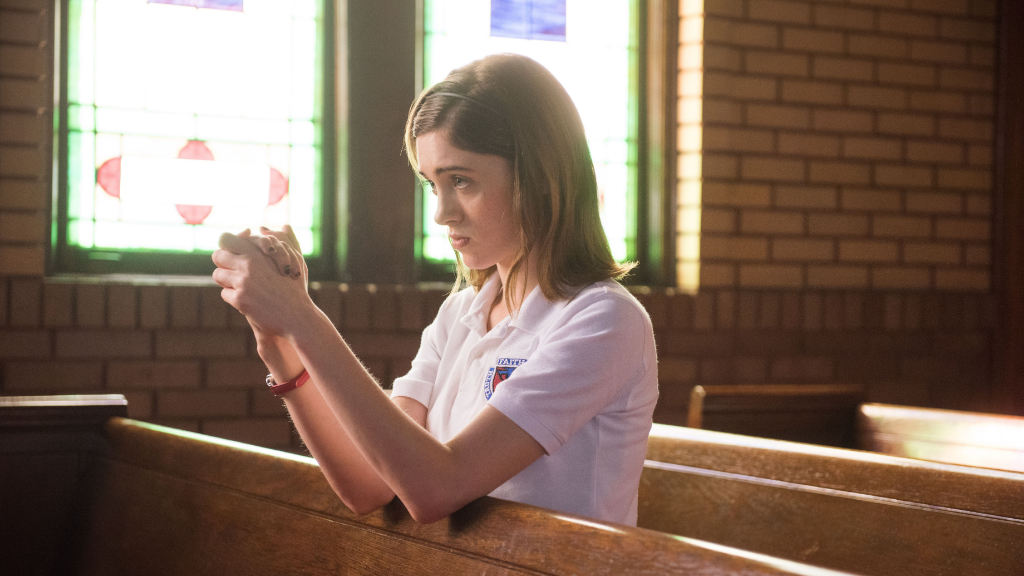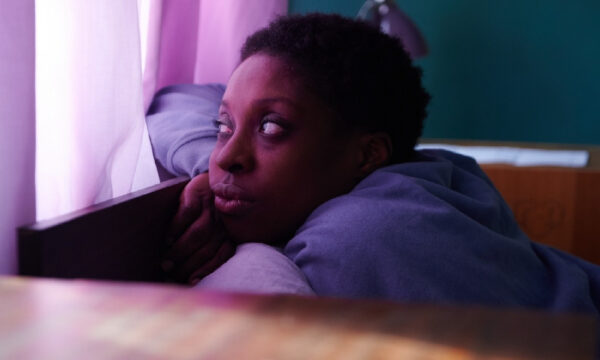Yes, God, Yes

Writer and director Karen Maine’s first feature is a wholesome film about a young woman’s sexual awakening within a repressive Catholic school in the early 2000s. Yes, God, Yes stands out against stereotypical coming-of-age films in how it represents female masturbation and debunks the shame associated with it by making it the main subject of the story.
In its opening, the film sets itself up as a sardonic reflection of America’s holier-than-thou morality when a verse from the Book of Revelations is swiftly followed by the definition of the sexual act of “Tossing a salad”. The clashing of these two worlds, the Catholic church and the natural curiosity of a pubescent girl, generates the film’s main tension. Sixteen-year-old Alice (Natalia Dyer) searches for redemption after an innocent AOL chat turns racy. In order to repress her sexual desires and reconnect with Jesus, Alice signs up to a religious retreat organised by her school, but soon begins to doubt and question the pious people surrounding her.
Maine expertly evokes the sensations of female shame and surveillance. Alice is isolated in her sexuality, believing that masturbation will, as her morality teacher Father Murphy (Timothy Simons) warns, lead to “damnation for all eternity”. Maine’s decision to set the film in the era before mobiles had internet, when teenagers had to find clues to their sexual urges on cheesy chatrooms on shared computers, amplifies the sense of constant surveillance and Alice’s fear of being discovered.
What makes this film so radical is how ordinary it is, which normalises Alice’s sexual desires. Dyer’s performance is relatable and nuanced, offering a complex rewriting of the typical “good girl” in coming-of-age dramas. By carefully evoking Alice’s inner sensations through subjective cinematography, Maine allows the viewer to feel connected with her and see the world as she does. In effect, while female sexuality and bodies are the subject of the film, they are not something to be ogled at, but rather, to be experienced. Crucially, the audience is never made to feel that what Alice is doing is shameful. Instead, what is unquestionably wrong is how she is forced to deny a natural part of herself. Transforming a common, yet tabooed, female experience into something “normal” and sweet is a significant development in women’s coming-of-age narratives and will certainly enable young women to feel less alone and, hopefully, more empowered by their bodies.
Georgie Cowan-Turner
Yes, God, Yes is released digitally on demand on 17th August 2020.
Watch the trailer for Yes, God, Yes here:


























Facebook
Twitter
Instagram
YouTube
RSS